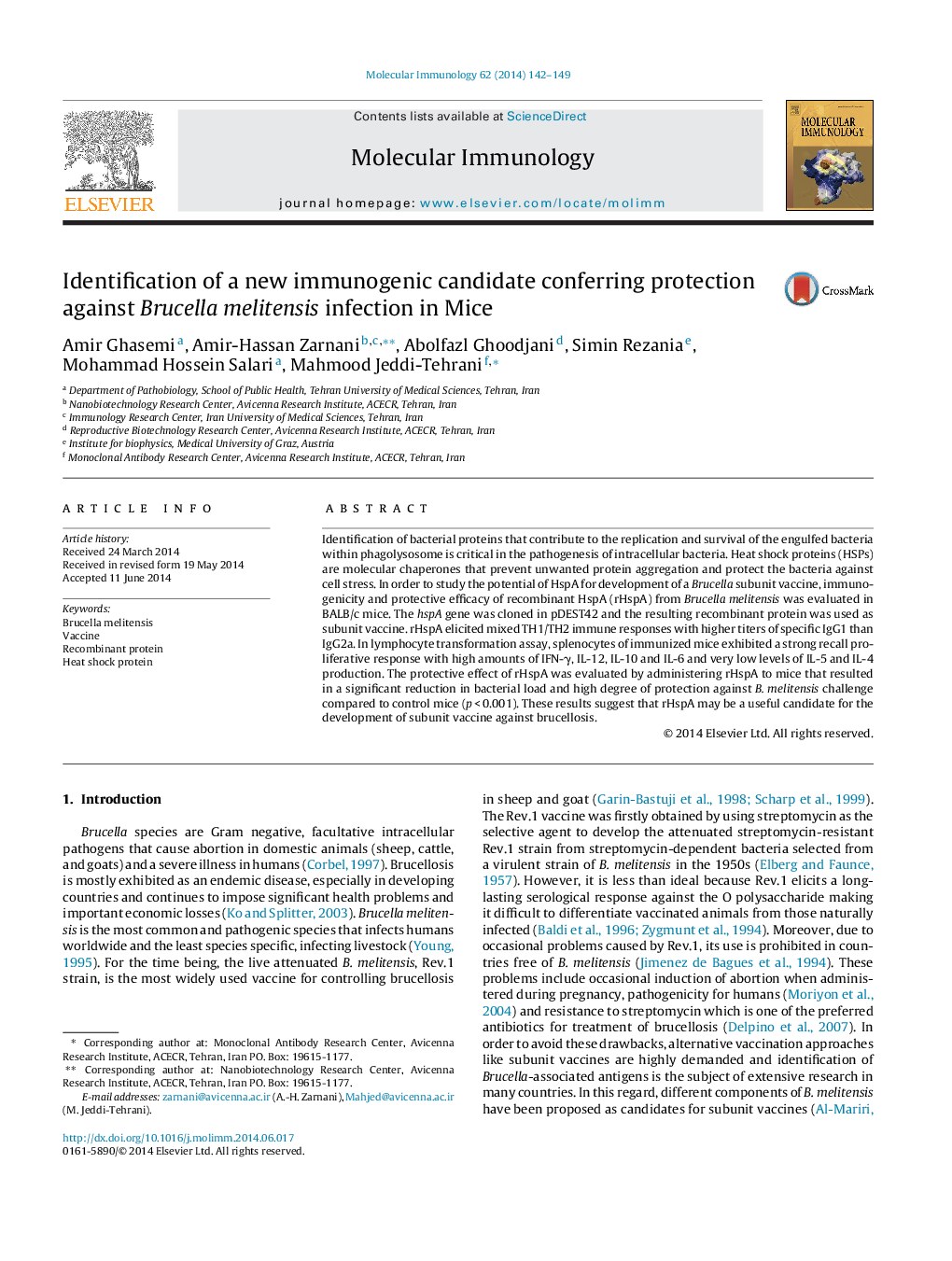| Article ID | Journal | Published Year | Pages | File Type |
|---|---|---|---|---|
| 5916784 | Molecular Immunology | 2014 | 8 Pages |
Abstract
Identification of bacterial proteins that contribute to the replication and survival of the engulfed bacteria within phagolysosome is critical in the pathogenesis of intracellular bacteria. Heat shock proteins (HSPs) are molecular chaperones that prevent unwanted protein aggregation and protect the bacteria against cell stress. In order to study the potential of HspA for development of a Brucella subunit vaccine, immunogenicity and protective efficacy of recombinant HspA (rHspA) from Brucella melitensis was evaluated in BALB/c mice. The hspA gene was cloned in pDEST42 and the resulting recombinant protein was used as subunit vaccine. rHspA elicited mixed TH1/TH2 immune responses with higher titers of specific IgG1 than IgG2a. In lymphocyte transformation assay, splenocytes of immunized mice exhibited a strong recall proliferative response with high amounts of IFN-γ, IL-12, IL-10 and IL-6 and very low levels of IL-5 and IL-4 production. The protective effect of rHspA was evaluated by administering rHspA to mice that resulted in a significant reduction in bacterial load and high degree of protection against B. melitensis challenge compared to control mice (p < 0.001). These results suggest that rHspA may be a useful candidate for the development of subunit vaccine against brucellosis.
Related Topics
Life Sciences
Biochemistry, Genetics and Molecular Biology
Molecular Biology
Authors
Amir Ghasemi, Amir-Hassan Zarnani, Abolfazl Ghoodjani, Simin Rezania, Mohammad Hossein Salari, Mahmood Jeddi-Tehrani,
